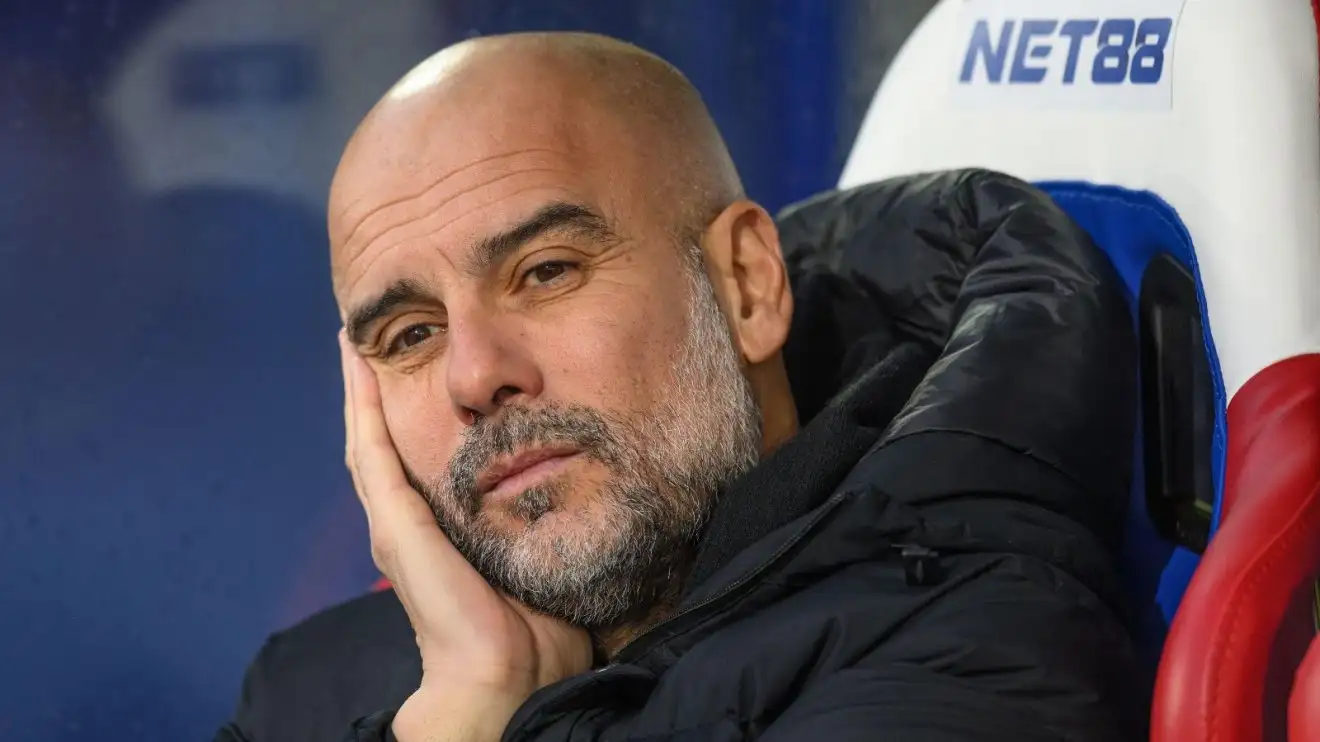
Pep Guardiola has dismissed claims that Manchester City’s recent struggles stem from a “completely unfair reason” while also admitting to some internal doubts ahead of their Premier League clash with Everton. The Manchester City manager addressed these issues in a candid pre-match press conference, offering insight into his mindset as the team navigates an uncharacteristic dip in form. Guardiola’s comments come at a critical juncture in the season, as City battles to maintain momentum in their domestic and European campaigns.
City’s dominant presence in football under Guardiola’s stewardship has rarely been called into question. However, a string of inconsistent performances has prompted analysts and fans to speculate about the underlying causes of their recent crisis. Some have pointed to squad rotation, fatigue, or even complacency as possible factors. Yet Guardiola, known for his meticulous attention to detail, has categorically rejected one particular narrative he believes to be unfounded.
During the press conference, Guardiola was quick to label the suggestion that his tactical decisions were to blame as “completely unfair.” He emphasized his faith in his players and his methods, stating, “There’s always going to be criticism when results don’t go our way, but to say it’s because of how we play or the decisions we make as a team is completely unfair. Football is more complicated than that.”
Guardiola went on to highlight the unpredictability of the game, noting that even the best-prepared teams can encounter challenges. “Sometimes it’s about small details—an unlucky deflection, a missed chance, or even just the rhythm of the match. These things can happen to any team, no matter how good they are,” he explained.
Despite his firm dismissal of external criticism, Guardiola admitted that he has faced moments of doubt during this challenging period. Known for his relentless drive and high standards, the Catalan coach acknowledged that managing doubts is part of his role. “Of course, when things don’t go perfectly, you reflect. You think about what you can do better, how you can help the team. Doubts are natural, but they are also part of what pushes us to improve,” he said.
Guardiola’s comments reflect a nuanced approach to leadership during adversity. While he refuses to dwell on external criticism, he is clearly committed to self-reflection and finding solutions. This mindset has been a hallmark of his managerial career, which has seen him achieve unprecedented success with Barcelona, Bayern Munich, and now Manchester City.
As City prepares to face Everton, the stakes could not be higher. The match represents an opportunity for the reigning Premier League champions to regain their footing and reassert their dominance. Everton, however, will not be an easy opponent. Under manager Sean Dyche, the Toffees have shown resilience and tactical discipline, traits that could pose a challenge for Guardiola’s side.
City’s squad depth remains one of their greatest strengths, but injuries and fatigue have tested their resources in recent weeks. Key players like Kevin De Bruyne and Jack Grealish have been sidelined at various points, forcing Guardiola to adapt his lineup. While City boasts an array of talent, including Erling Haaland, Phil Foden, and Bernardo Silva, the absence of certain players has disrupted their rhythm.
Guardiola addressed the issue of squad rotation, defending his decisions while acknowledging the challenges it presents. “We have a lot of games in a short period, so we need to rotate. It’s not just about keeping players fresh but also about managing their physical condition. Sometimes, it works perfectly; other times, it’s more complicated,” he remarked.
One of the recurring criticisms aimed at Guardiola is his tendency to overthink tactics, particularly in high-stakes matches. While his innovative approach has often yielded success, it has also led to occasional missteps. When asked about this perception, Guardiola remained composed, stating, “Every decision I make is with the intention of helping the team. Whether it works or not, that’s football. The important thing is to keep learning and adapting.”
City’s recent struggles have also highlighted the mental aspect of the game. Guardiola has often spoken about the importance of maintaining focus and resilience, particularly during challenging periods. He believes that the team’s mentality will be crucial in overcoming their current difficulties. “Football is not just physical; it’s mental. We have to stay strong, trust in our abilities, and keep working together as a team,” he emphasized.
Despite the challenges, Guardiola remains optimistic about City’s prospects. He pointed to their track record of bouncing back from setbacks and their commitment to excellence as reasons for confidence. “This team has shown time and time again that we can overcome obstacles. We know what we’re capable of, and we’ll continue to fight for every point,” he declared.
The upcoming match against Everton offers a chance for City to demonstrate their resilience and resolve. For Guardiola, it is not just about securing three points but also about setting the tone for the remainder of the season. “Every game is an opportunity to improve and show who we are as a team. That’s what we’ll focus on,” he concluded.
As the football world watches closely, Guardiola’s leadership will undoubtedly be a defining factor in City’s ability to navigate this turbulent period. His blend of tactical acumen, emotional intelligence, and unwavering commitment to his team has been the cornerstone of his success. Whether City can turn their season around remains to be seen, but one thing is clear: under Guardiola’s guidance, they will not go down without a fight.
For fans and critics alike, the match against Everton is more than just another fixture—it is a litmus test for City’s character and Guardiola’s adaptability. As the reigning champions seek to silence their doubters, the stage is set for an intense and compelling encounter.
Leave a Reply